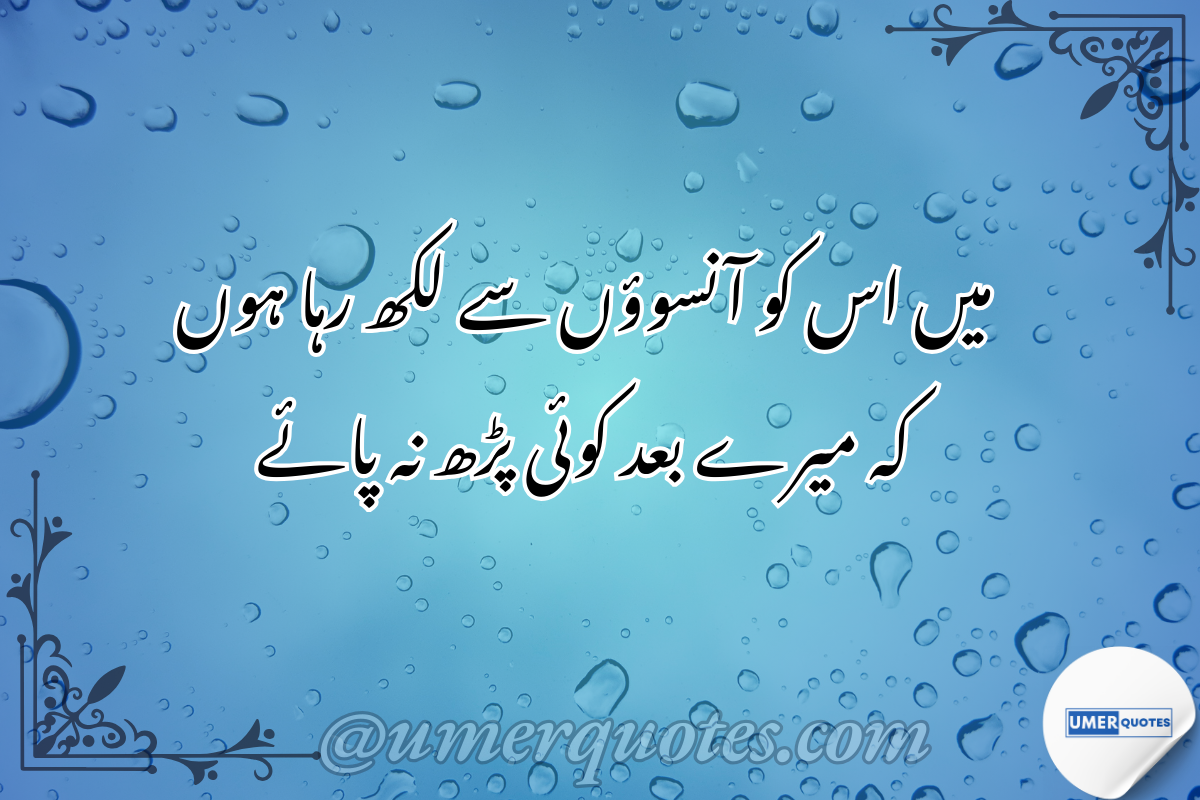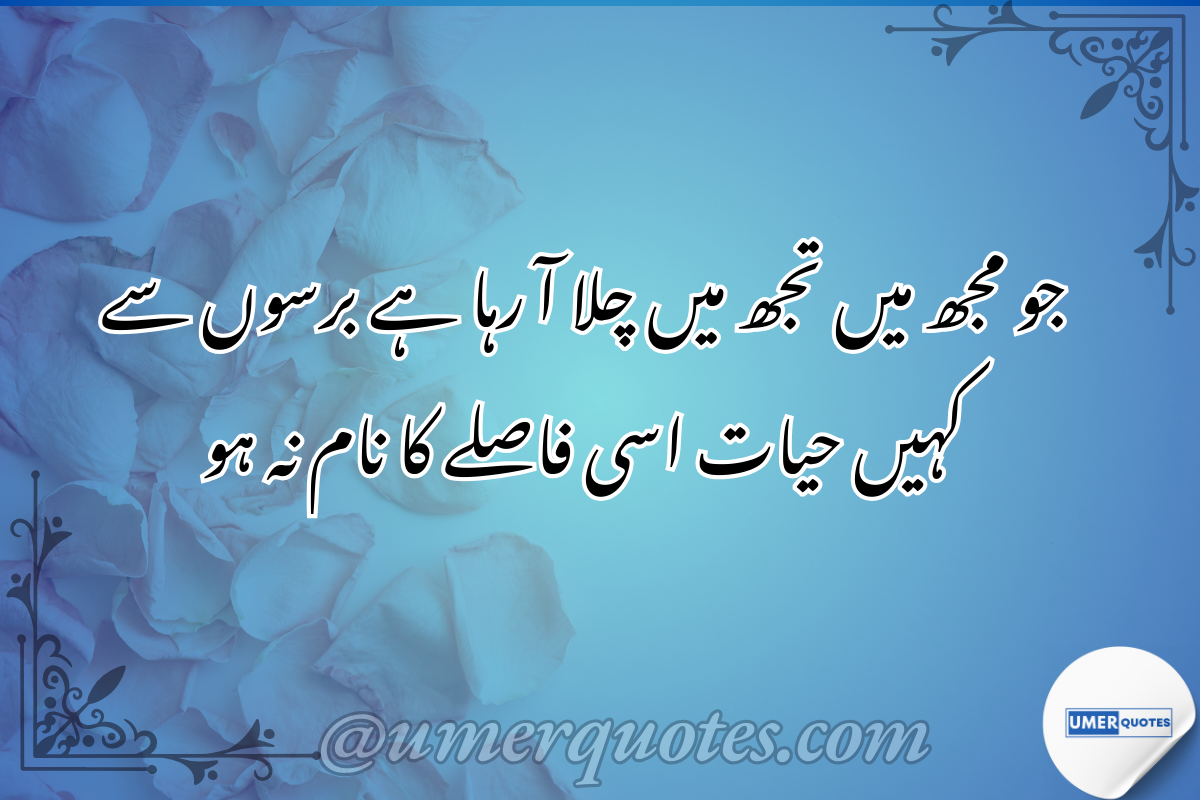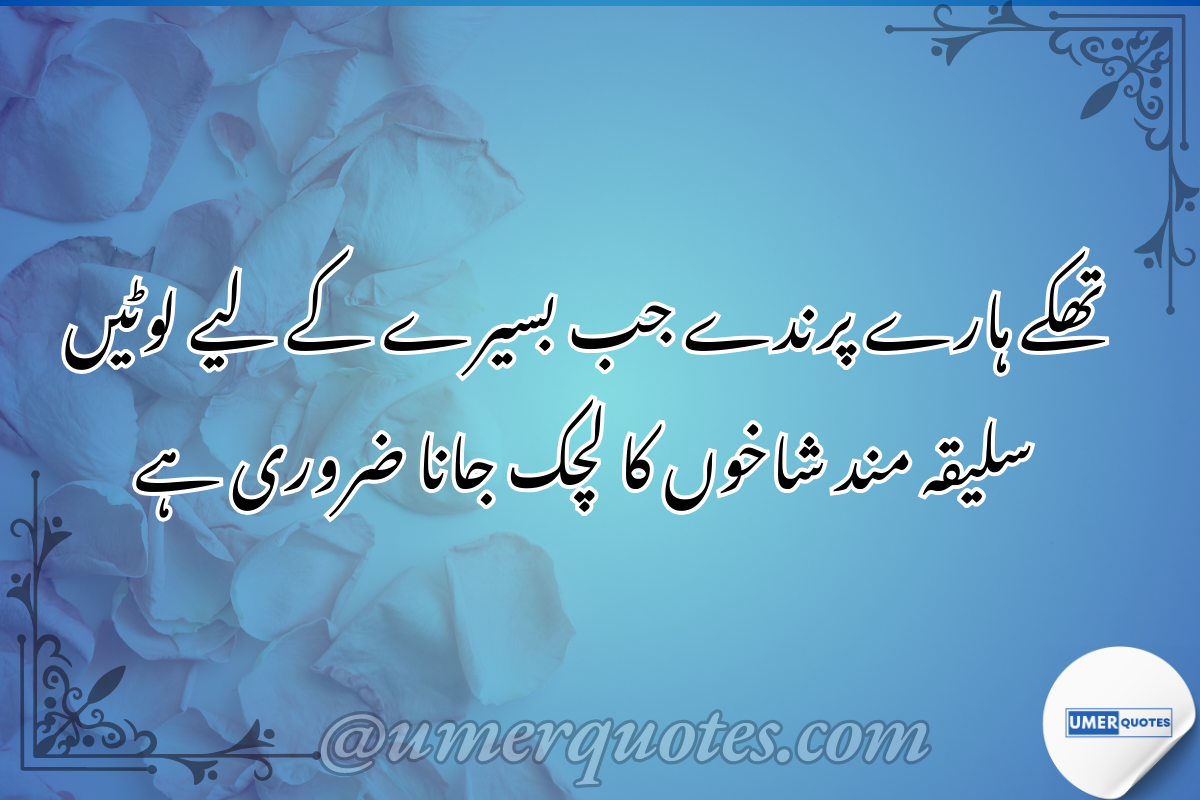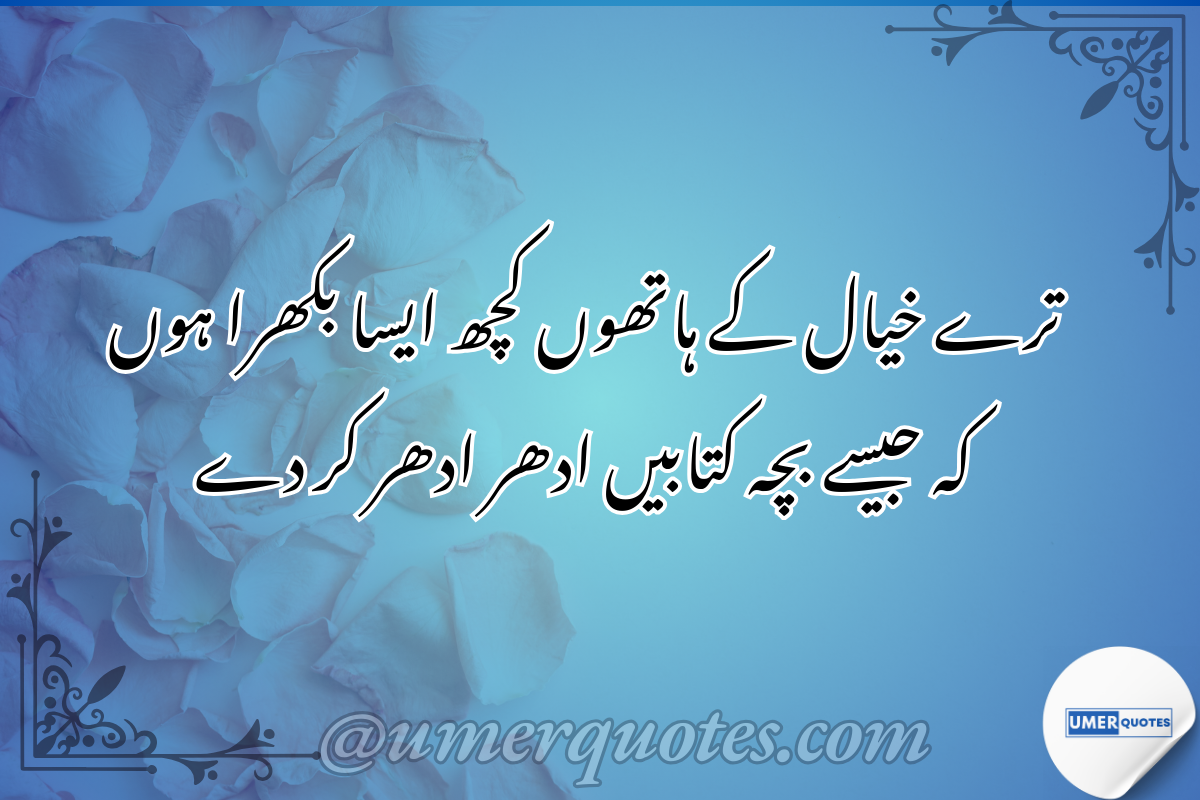
میں اس کو آنسوؤں سے لکھ رہا ہوں
کہ میرے بعد کوئی پڑھ نہ پائے
Emotional and psychological:
This poem shows deep sorrow and emotional tenderness. Whatever the poet is writing, he is pouring all his pain, pain and inner confusion into it. Writing with tears indicates that these words are not just words but reflect the intensity of weeping from the depths of the heart. It seems that the poet is expressing the secrets and sorrows of his soul in a way that is difficult for anyone else to understand or bear.
So that no one can read after me:
In the second stanza, “That no one may read after me”, the poet is in a state of ignorance where he wants to keep the generation or people who come after him ignorant of the reality of his condition. Here he is not only expressing the intensity of his emotional state, but also showing that he wants his inner pain and suffering to go away.Can’t open for anyone else. This feeling shows loneliness and isolation, where the poet’s heart condition is so complicated and painful that he wants no one else to understand his pain.
Message:
This poem shows a depth where the poet describes his individual struggle and the intensity of his emotions in a way that cannot be understood by anyone else, and his grief is so personal and deep that he cannot be understood by anyone. do not want to appear in front of.
جو مجھ میں تجھ میں چلا آ رہا ہے برسوں سے
کہیں حیات اسی فاصلے کا نام نہ ہو
Emotional and Philosophical Interpretation:
This poem describes the depth of human relationships and emotional distances. The poet is indicating the moments or feelings that have existed between him and another person for years. There is an imperceptible but profound distance between them that persists over time. This distance can be not only physical but also emotional and spiritual.
Click here for more Quotes about Love
Definition of life:
In the second stanza, the poet is looking at life from a new angle and questions whether life is the name of this constant distance. This distance can be a sign of struggle, a search for closeness, or incompleteness, which gives meaning to life’s experiences. The poet is pondering that perhaps these distances, however painful they may be, are the true reality of our lives.
Message:
This poem highlights the complexities of life and the beauty and sadness of distance in human relationships. The poet alludes to the idea that perhaps the meaning of life is hidden in those distant moments, which make us realize that we long for someone’s closeness, but can never quite find it.
تھکے ہارے پرندے جب بسیرے کے لیے لوٹیں
سلیقہ مند شاخوں کا لچک جانا ضروری ہے
Emotional and natural:
This poem best reflects the phenomena of nature and the principles of life. In the first stanza, the poet presents the image of tired birds who return to their nest or branches for rest after a day’s hard work. These birds represent those individuals in human life who are exhausted and seek peace and shelter.
The importance of flexibility and tact:
In the second stanza, the poet portrays the behavior of branches as the behavior of human life. “Leaving the graceful branches” is a symbolic expression that highlights how important it is to be gentle, flexible, and accommodating to others in life. Just as weary birds look for soft and bending branches for rest, so humans should be flexible in their behavior so that they can be a source of relief and comfort to others.
Message:
This verse is an advice for human behavior that in life it is important to understand the sufferings of others and to be gentle to comfort them. Flexibility and grace not only beautify a person’s personality but also provide a strong support for others, just as branches provide shelter for birds.
ترے خیال کے ہاتھوں کچھ ایسا بکھرا ہوں
کہ جیسے بچہ کتابیں ادھر ادھر کر دے
Emotional and imaginative:
This poem describes the intensity of one’s thought and its impact. The poet says that he has become so scattered and disordered under the influence of the thought of the beloved that anxiety has replaced peace in his being. “In the hands of three thoughts” shows that the thought of the beloved has taken over his mind and heart completely, and he is unable to organize his thoughts.
The analogy of children and books:
The poet has explained his feelings with a beautiful and simple simile. The scene of a child moving books around is a manifestation of disorder and innocence. The poet relates this state to his own state, in which he is innocently but spontaneously disintegrated, like books scattered by a child’s involuntary movements.
Click here for more Quotes about Love
Message:
This poem highlights the power of love and imagination. The condition of the poet shows that when one’s thought dominates the heart, it gives life an innocent but random appearance. In this poem, there is a beautiful combination of the depth of love and its impact with the state of fragmentation.






